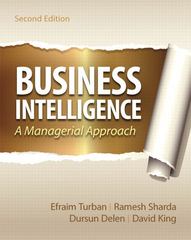Question
Read case study. Case Study #1 - Storage Shelving Units Corp . (SSUC) INTRODUCTION Storage Shelving Units (SSU's) provide secure personal storage for students, employees
Read case study.
Case Study #1 - Storage Shelving Units Corp. (SSUC)
INTRODUCTION
Storage Shelving Units (SSU's) provide secure personal storage for students, employees or patrons at gymnasiums. Its constructed of 16 gage steel with a variety of powder coat paint finishes to withstand daily use and occupies a small amount of floor space.
BACKGROUND
By the year 2010, Storage Shelving Units Corp. (SSUC) has grown into one of the major suppliers of SSU's for both commercial and academic institutional use. Competition was fierce. Consumers would evaluate SSU's on design and quality. Each SSU had to be available in many different finishes. Commercial buyers are more interested in price than academic institutions. SSUC did not advertise much, some advertising appeared in trade journals. Most of their advertising funds were spent on twice a year on trade shows and the annual builders trade show. For example, one large builder could purchase more than 1000 SSU's s to be used in new construction of a school, gym or commercial facilities. Missing an opportunity to display the new products at these trade shows could easily result in lost revenue for several months.
OPERATING CULTURE at SSUC
SSUC has a non-cooperative culture. Marketing and engineering would rarely talk to one another. Engineering wanted freedom to design new products, whereas marketing wanted final approval to make sure that what was designed could be sold. The conflict between marketing and engineering became so fierce that early attempts to implement project management failed. Nobody wanted to be the project manager. Functional team members refused to attend team meetings and spent most of their time working on their 'pet projects' rather than required work. Their line managers also showed little interest in supporting project management.
Project management became so disliked that the procurement manager refused to assign any of his any of his employees to project teams. Instead, he mandated that all project work come through him. He eventually built up a 'wall' around his employees. He claimed that this would protect them from the continuous conflicts between engineering and marketing.
EXECUTIVE COUNCIL MEETING
The executive council mandated that another attempt to implement good project management practices must occur quickly. Project management would be needed not only for new product development but also for specialty products and enhancements. The vice presidents for marketing and engineering reluctantly agreed to try to patch-up their differences, but did not appear confident that any changes would take place. Strange as it may seem, no one could identify the initial cause of the conflicts or how the trouble actually began. Senior management hired a consultant to identify the problems, provide recommendations and alternatives, and act as a mediator. The consultant's process would have to begin with interviews.
INTERVIEWS
These are the comments the engineering department made.
- "We are loaded with work. If marketing would stay out of engineering, we could get our job done"
- "Marketing does not understand that there's more work for us to do other than just new product development. This will allow us to finish jobs uninterrupted"
- "Marketing expects everyone in engineering to stop what we are doing in order to put out marketing fires. I believe that most of the time the problem is that marketing doesn't know what they want up front. This leads to change after change. Why can't we get good definition at the beginning of each project'
These are the comments the marketing department made
- "Our livelihood rests on income generated from trade shows. Since new product development is 4-6 months in duration we have to beat-up on engineering to make sure that our marketing schedules are met. Why can't engineering understand the importance of these trade shows?"
- "Because of the time required to develop new products, we sometimes have to rush into projects without having a good definition of what is required. When a customer at a trade show gives us an idea for a new product, we rush to get the project underway for introduction at the next trade show. We then go back to the customer and ask for more clarification and/or specifications. Sometimes we must work with the customer for months to get the information we need. I know that this is a problem for engineering, but we cannot be helped"
The consultant wrestled with the comments from both groups but was still somewhat perplexed. "Why doesn't engineering understand marketing's problems?" pondered the consultant. In a follow-up interview with an engineering manager, the following comment was made.
"We are currently working on over 100 different projects in engineering, and that includes those which marketing requested. Why can't marketing understand our problems?"
- Identify the critical issue at SSUC?
- What can be done about it?
- Can excellence in project management still be achieved and, if so, how? What steps would you recommend?
- Can SSUC achieve an acceptable cooperative PM culture? How long will it take to achieve such a culture?
- Trying to get agreement between marketing and engineering is essential. What difficulties would you expect in that effort?
- If the consultant comes to a conclusion that one of the departments is responsible for the toxic culture that exist at SSUC what might happen? if benchmarking studies indicate that either marketing or engineering are at fault?
g. The study talks about 'functional team'. Who could be in a functional team?
Step by Step Solution
There are 3 Steps involved in it
Step: 1

Get Instant Access to Expert-Tailored Solutions
See step-by-step solutions with expert insights and AI powered tools for academic success
Step: 2

Step: 3

Ace Your Homework with AI
Get the answers you need in no time with our AI-driven, step-by-step assistance
Get Started


